The gameshow featuring Deaf contestants, host and crew has challenged the industry to produce more gripping, inclusive TV
As I sat watching rehearsals for the second series of Sign2Win, I reflected on what an extraordinary achievement the show is and how the industry as a whole ought to know about it.
Sign2Win is the first ever TV gameshow made entirely in BSL, commissioned by the British Sign Language Broadcasting Trust (BSLBT). The host is Deaf, 95% of the contestants are Deaf, and the remainder are generally Codas (Children of Deaf Adults) whose first language is BSL. Just as significantly, more than half the crew are Deaf.
Imagine for a moment a studio where there is no immediate way to communicate with the host when she is on the floor (and keep in mind that she has never hosted a game or quiz show before). Then throw into the mix the fact that the director and two of the three camera operators are d/Deaf and the floor manager is not only Deaf but has never had a floor manager role before.
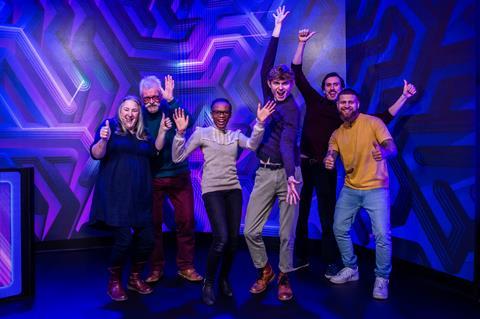
In fact, during the prep for series one last year, I discovered that I would be the only person in the studio who had ever been in a game or quiz show studio before – and I’m a lawyer, not a producer.
What became clear when we were recording series one, however, was that Rachel Drummond-Hay (co-MD of Drummer TV and exec producer of the series) had handpicked a team of people who were exactly the right people to make this extraordinary enterprise work.
The absolute genius of this show has been because of, not in spite of, the way it has torn up and reinvented the rule book on making a gameshow.
The team have picked up roles that weren’t technically theirs, and certainly not their specialism, and flexed in way I have never seen before. The extraordinary SP, Lucy Gosling, was also games producer and computer operator. There was no script supervisor. Furthermore, Rachel could be found sweeping the floor or reattaching contestant microphones – not something many execs do.
Most of the Drummer TV crew have a good level of BSL. Drummer has a track record of making shows for BSLBT and a great commitment to their employees being bilingual (BSL lessons are held weekly). Only a couple of people in the studio (including me) had next to no BSL. A fantastic team of interpreters were strategically placed around the studio to ensure that communication was seamless for all.
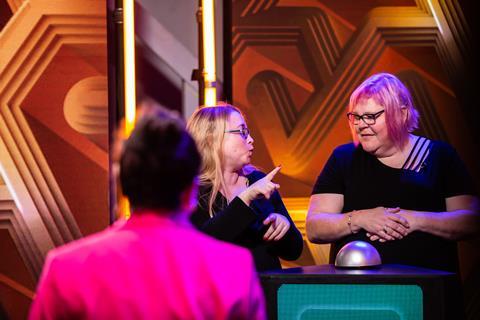
The interpreters also provided people like me with a crash course in Deaf culture. The learning curve for me was not just about developing a BSL vocabulary – but about a sensitivity to an entirely different community.
Deaf people are not ‘just like everyone else but unable to hear’. They have an entirely different experience of the world, and a completely different language structure, and hearing people need to understand and adapt to that.
Recording took place in a tiny space, where effectively, the gallery was in the studio. Initially this felt impossible to me – but the reality was that it actually made communication (which, when you’re deaf, requires a line of sight) easier. Despite this, it also provided complications.
When working on a gameshow we all have conversations that we would not want contestants to hear. These contestants might not be able to hear – but they can see. Many can lip-read and they can see sign language from a distance, so this created challenges when we were discussing whether answers were acceptable. As is always the way, we learned a lot on series one, and by series two the contestant holding area had been moved and the adjudicators had a private conversation room away from prying eyes.
Adjudicating a gameshow in a language one doesn’t speak has its challenges. I have done it a few times – adjudicating Tipping Point in Dutch was relatively do-able – but in BSL, there often isn’t a direct English translation and the hand shapes required are complex. So I worked alongside Drummer’s BSL experts as co-adjudicators, providing the gameshow knowledge while they scrutinised the answers and hand shapes, and allocated scores. An interpreter helped us ensure we were all working together and to the same principles.
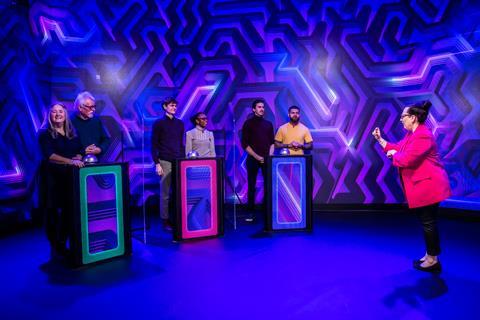
Scotland legally recognised BSL as a language in 2015. Staggeringly, the remainder of the UK took until earlier this year.
Deaf people have been excluded from much of mainstream programming and entertainment for far too long. The casting of Rose Ayling-Ellis in Strictly was a watershed moment and one has to hope things are moving forward. Feedback on Sign2Win has been hugely positive and the flood of people applying for series two demonstrates the appetite amongst deaf people to be included in this type of show.
When asked why they wanted to be on the show, some contestants welled up, saying they’d watched gameshows all their life and loved them – but could never apply. Finally, Sign2Win has given them the opportunity to make their dream of being on a gameshow come true.
This year I have worked on two other quiz shows that have had deaf contestants – one of them a prime time show with an on-camera interpreter. Despite the extra effort this has taken for producers to make it work, this is not apologetic TV – this is terrific, exciting, and very watchable television.
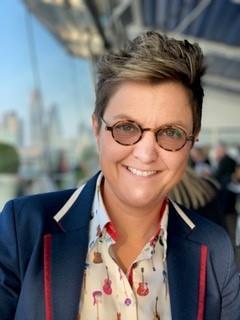
Drummer TV took it one big step further and created something extraordinary, entertaining and highly watchable for all – d/Deaf and hearing alike. They completely reinvented the process of making a gameshow and in doing so have created something important and revolutionary. This genuine inclusion of people previously neglected by our industry has propelled some true change – I can only hope that the rest of the industry picks up this ball and runs with it.
- Olivia van der Werff is director of Beyond Dispute










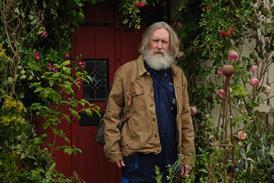
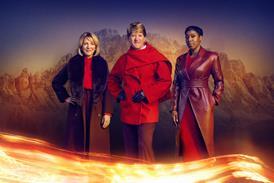








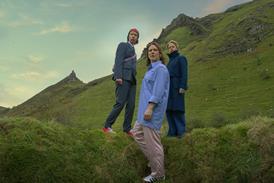








No comments yet